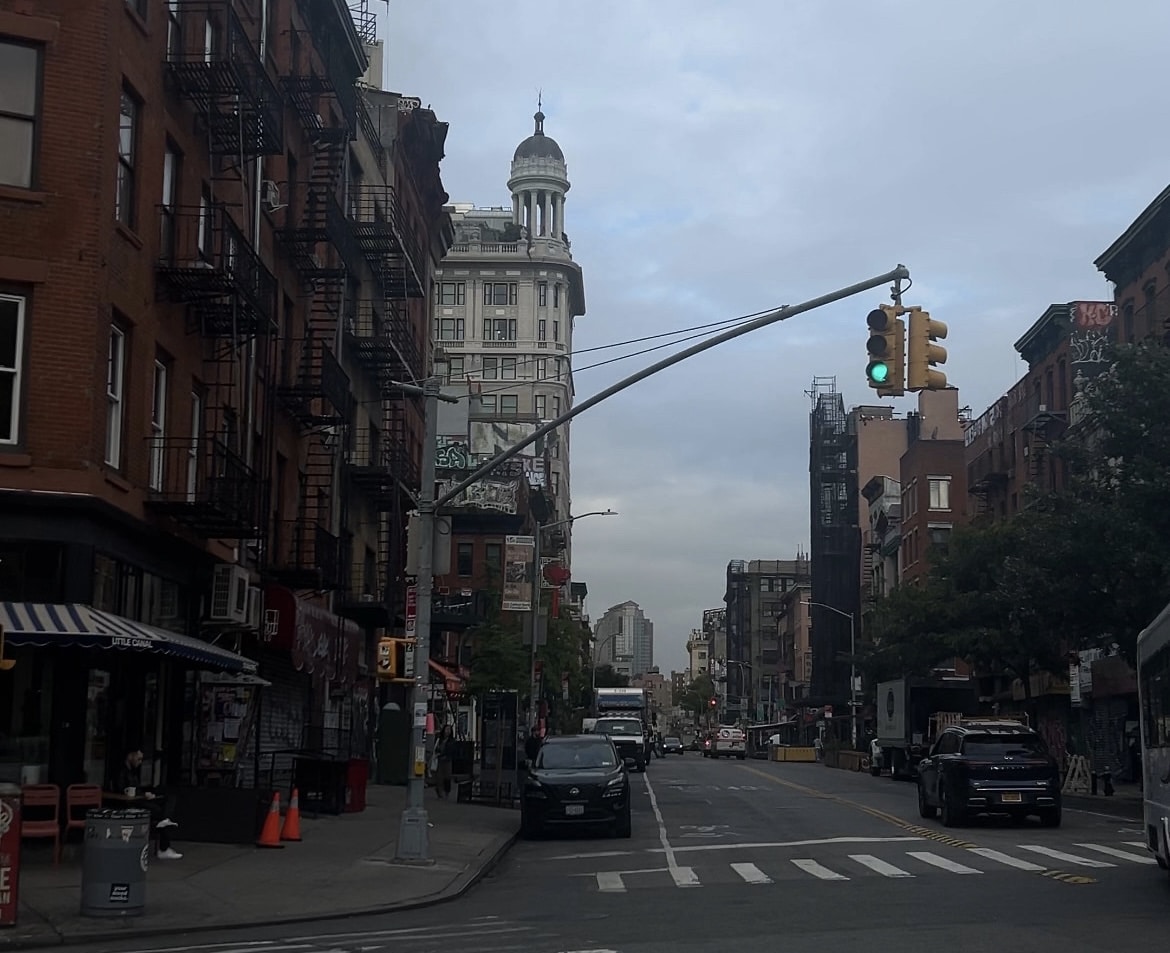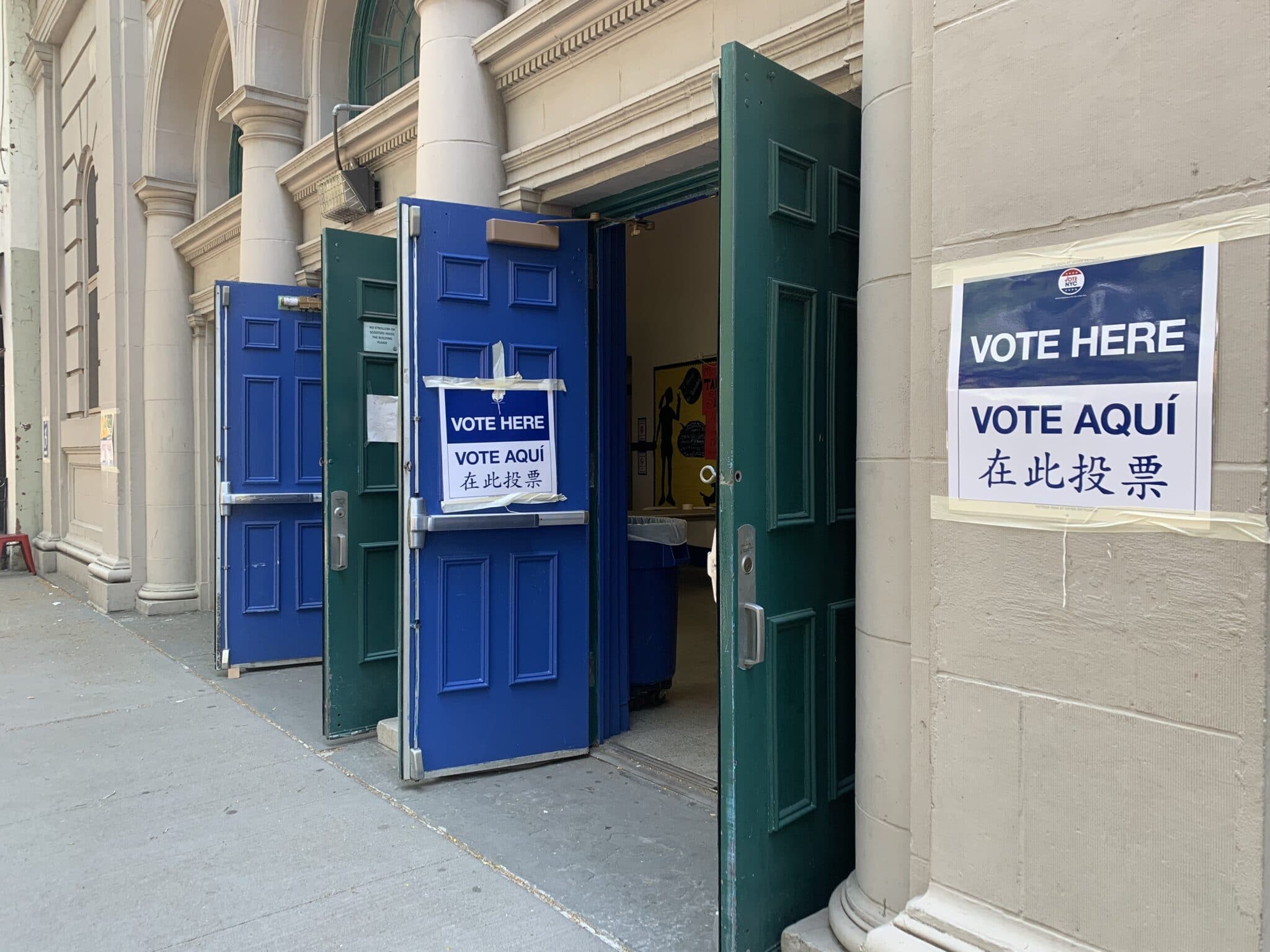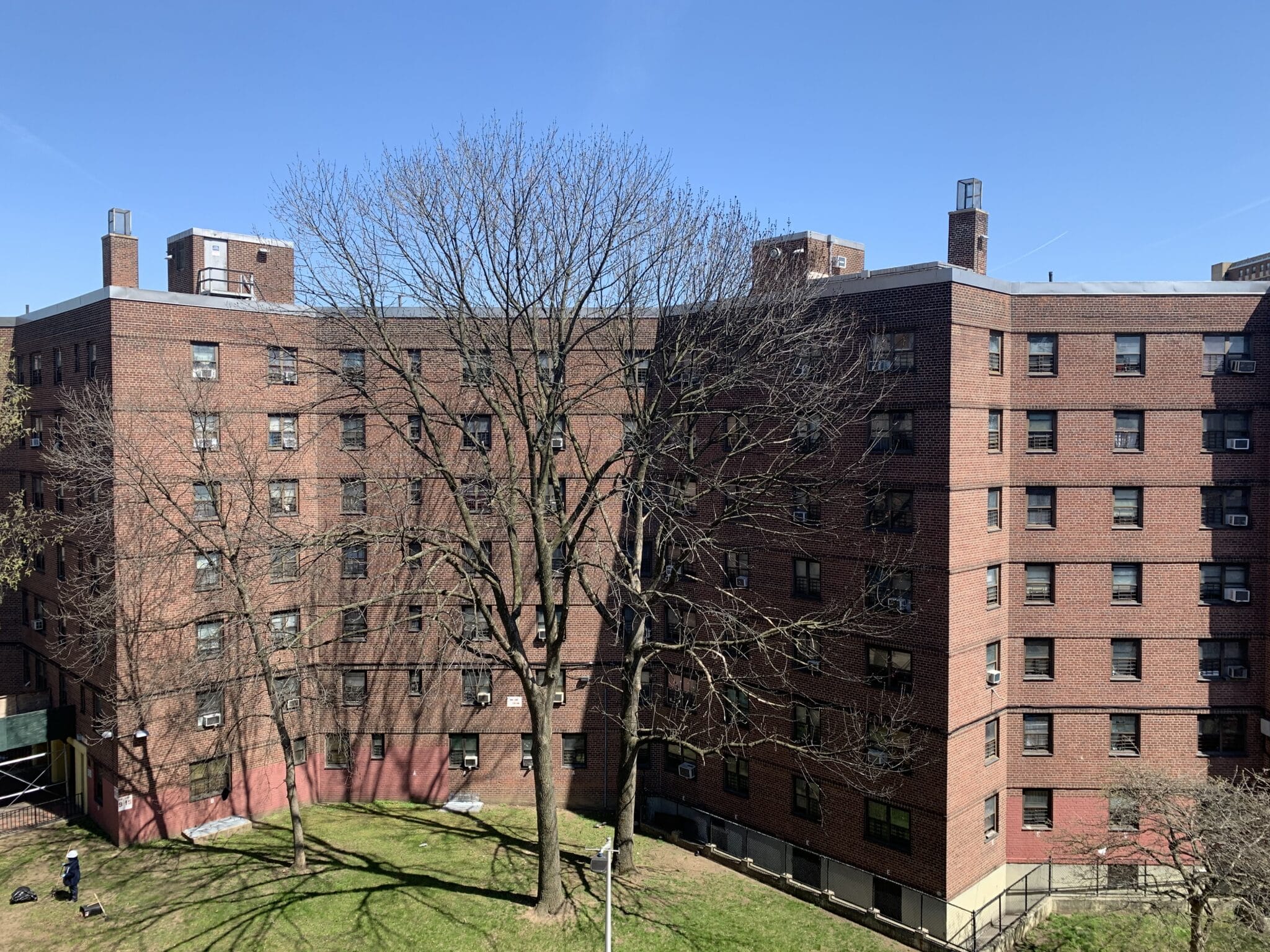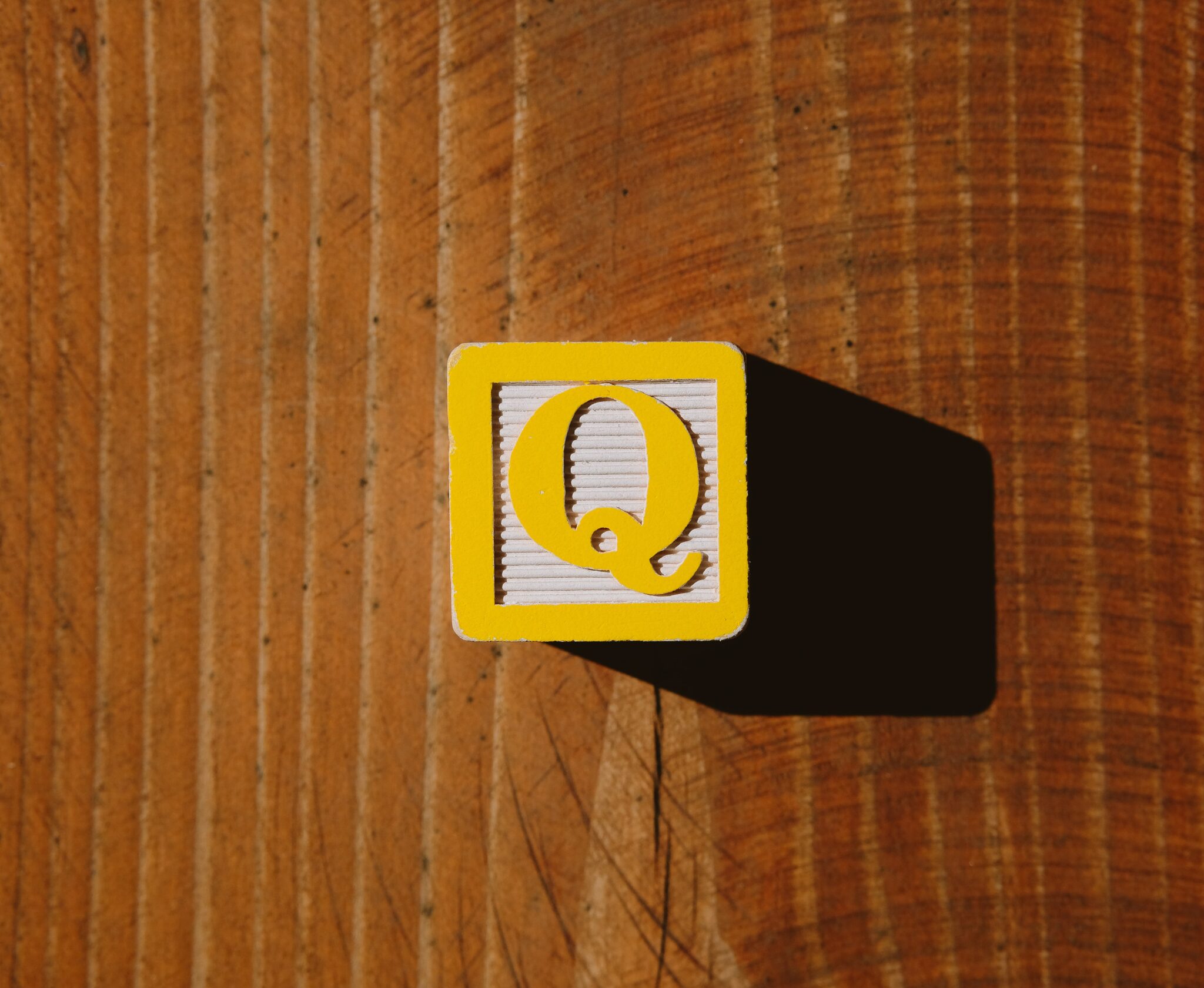The corner of Rutgers and Canal in the Lower East Side. Photo by Fatima Rose Esquivel Salazar.
The Lower East Side Speaks: Hopes and Challenges After the Election
As the dust settles on the presidential election, the Lower East Side (LES) offers a vivid glimpse into the diverse hopes and challenges facing New Yorkers. Home to over 72,000 residents, this vibrant neighborhood embodies the city’s multicultural fabric. From housing affordability to healthcare access and community preservation, LES residents are voicing their perspectives on what the new administration might mean for their futures.
Seeking Stability Amid Rising Costs
Luis Establa, a longtime resident, reflects on the economic pressures reshaping his community. “Affordability is slipping away for so many of us. We need leadership that prioritizes the people, not just development,” he says. His concerns mirror a larger struggle: with Manhattan’s median rent soaring to $4,400 in 2024, many long-term residents face the threat of displacement.
For Luis and his neighbors, rising rents signify more than financial strain. They represent the loss of deep-rooted connections, cultural heritage, and the sense of belonging that make neighborhoods like the LES unique. Without policies focused on community preservation, the LES risks losing its rich cultural mosaic and the shared history that define its identity.
A First-Time Voter with Big Hopes
Amara Karri, voting for the first time, is optimistic about engaging in the democratic process. “Voting isn’t just a checkbox; it’s a step toward shaping the future we envision,” she says. Karri emphasizes climate justice as her top priority, a sentiment echoed by 70% of New York City voters under 30, according to a Pew Research Center survey.
Karri also raises concerns about housing, noting that nearly half of LES households spend over 30% of their income on rent, as reported by the NYC Housing and Vacancy Survey. For her, addressing affordability is critical to ensuring a future where residents of all backgrounds can thrive.
Advocating for Families and Education
John Agusto, an educator in the LES, views this election as a chance to strengthen public schools. “Education is the foundation of opportunity, but too many kids are left behind,” he explains.
Agusto hopes the new administration will tackle NYC’s widening education gap, where schools in low-income areas often operate with 20% fewer resources than those in wealthier districts. The pandemic has only exacerbated these inequities, leaving students in underserved communities struggling to recover both academically and emotionally.
From Frontline Worker to Healthcare Advocate
Mei Tran, a healthcare worker and mother, witnessed the pandemic’s toll on her community. “When everything fell apart, it was neighborhoods like ours that bore the burden. We need leaders who remember that,” she says.
With over 10% of LES residents lacking health insurance, according to the NYC Department of Health, Mei hopes for expanded access to affordable care. She also advocates for increased support for hospitals in lower-income neighborhoods, which were overwhelmed during the pandemic.
Preserving Community Spaces
Javier Mendoza, a passionate advocate for green spaces, sees the election as an opportunity to protect the character of the LES. “Development is pushing out the places that bring us together. We can’t let that happen,” he says.
Mendoza underscores the importance of community spaces in addressing climate challenges. Research shows that green spaces, such as parks and community gardens, can lower urban temperatures by 2-4 degrees Fahrenheit, a vital defense against heat islands that disproportionately impact low-income neighborhoods like the LES.
“Our gardens aren’t just cooling the air; they’re nurturing our community,” Mendoza explains. These spaces provide environmental protection and foster social bonds, making them essential for both public health and preserving the unique identity of neighborhoods like the LES.
The LES at a Crossroads
The Lower East Side, like many communities across the nation, stands at a pivotal moment. Its residents share a collective hope: that the promises made during the campaign will translate into policies that uplift everyone—from longtime tenants to first-time voters. Built on diversity, the LES remains steadfast in its belief that meaningful change is possible with leadership that listens and acts.
Tags: 2024 Elections community Education Election Fatima Fatima Rose Esquivel Salazar Healthcare LES Lower East Side NYC presidential election Vote Voters voting
Series: Elections






